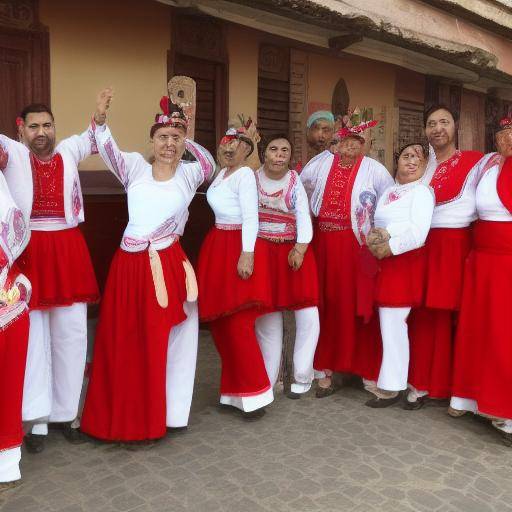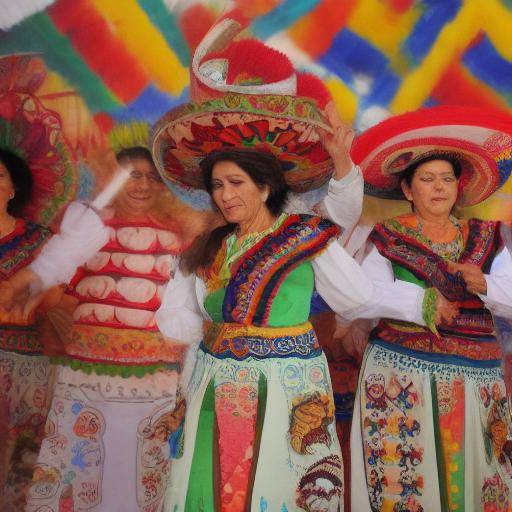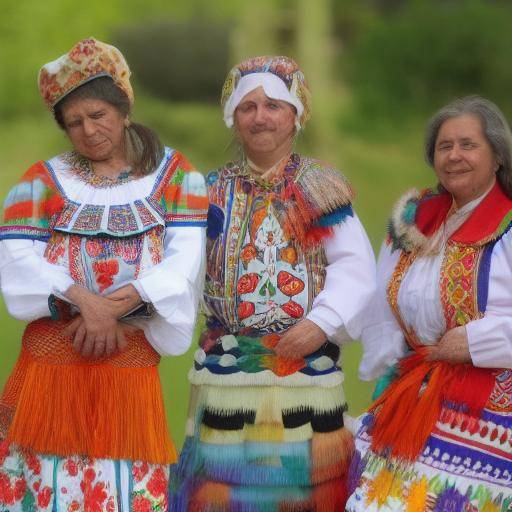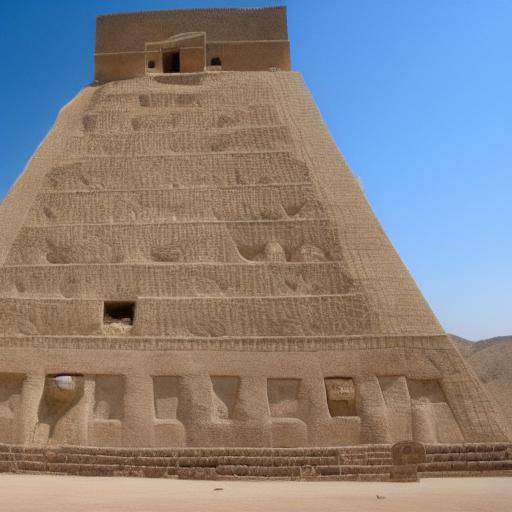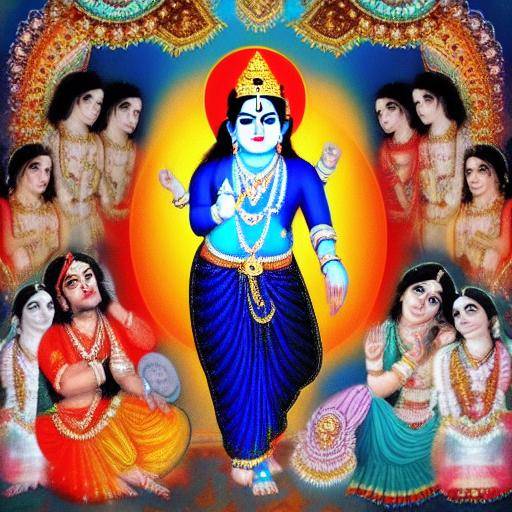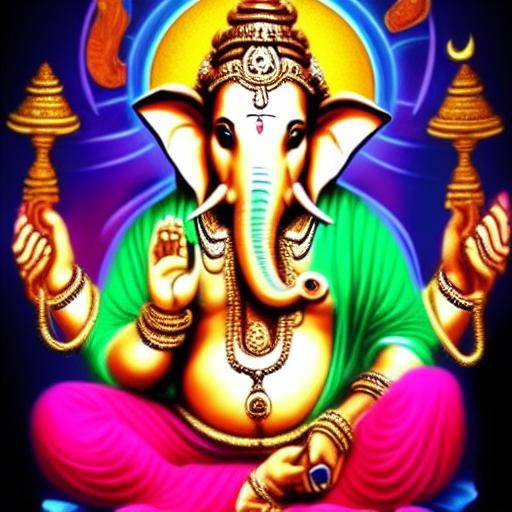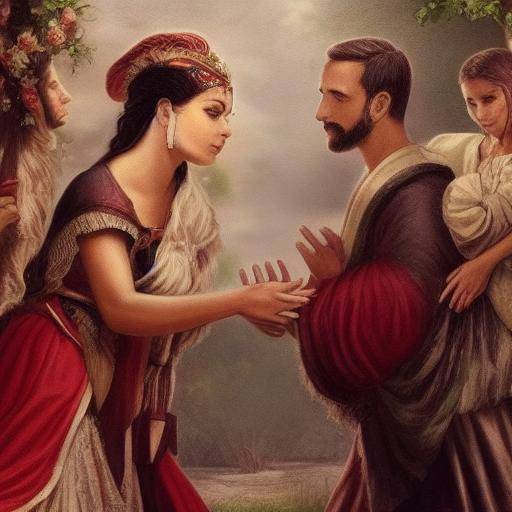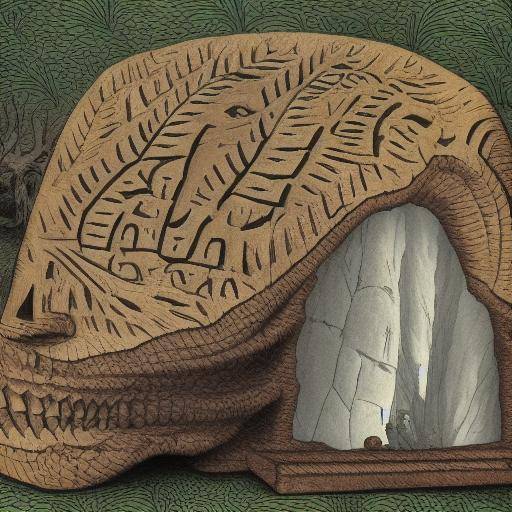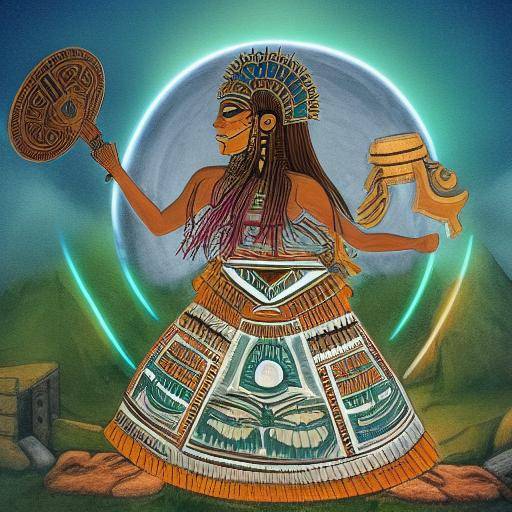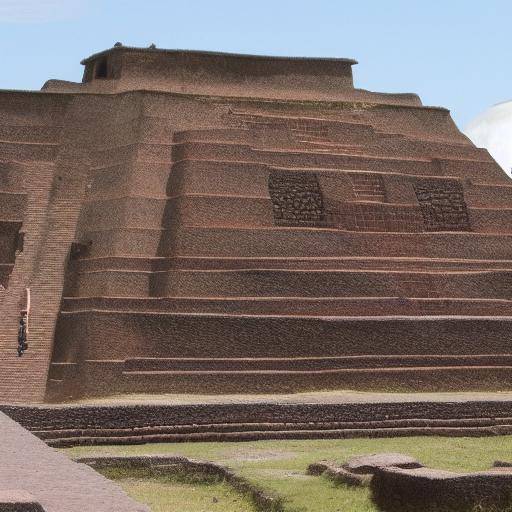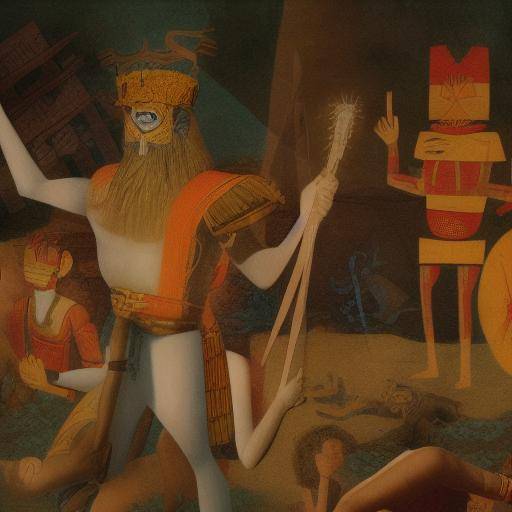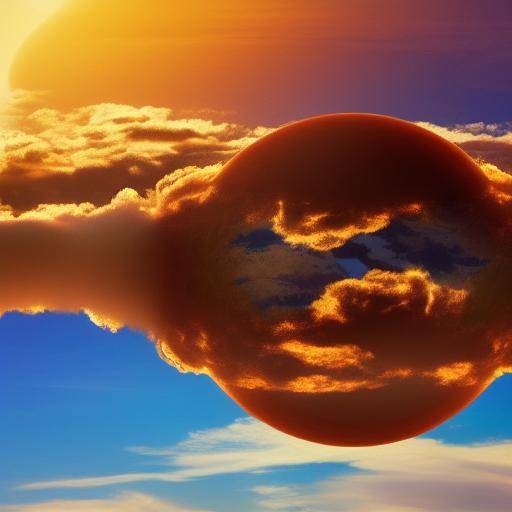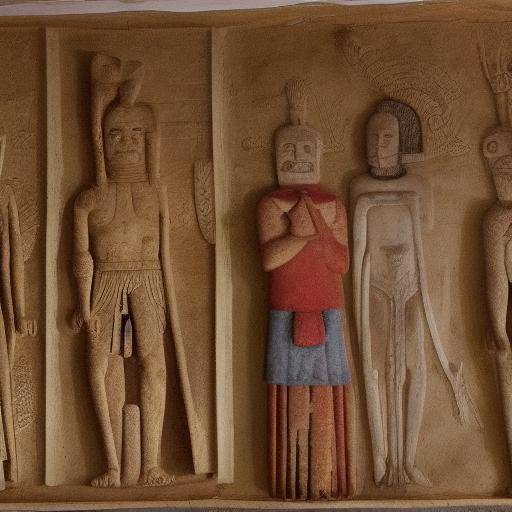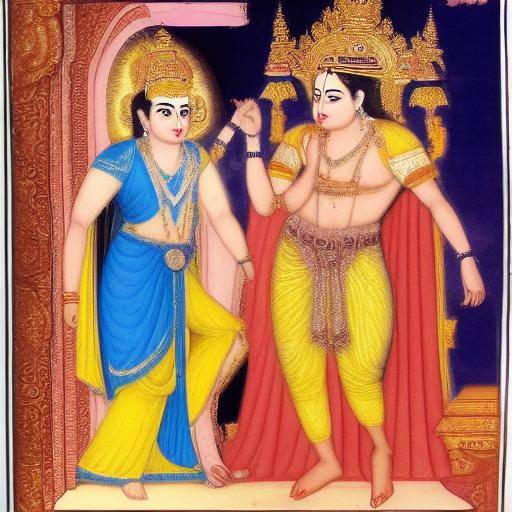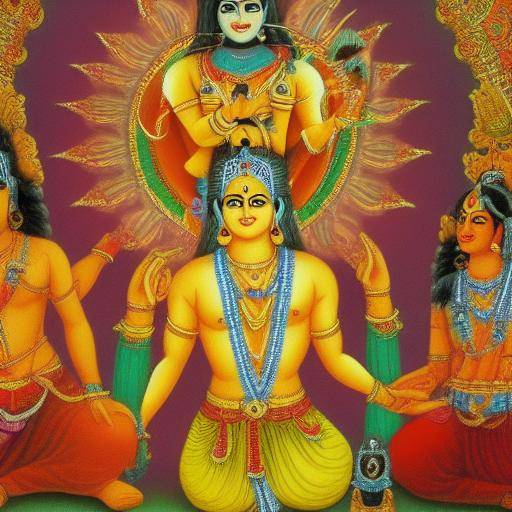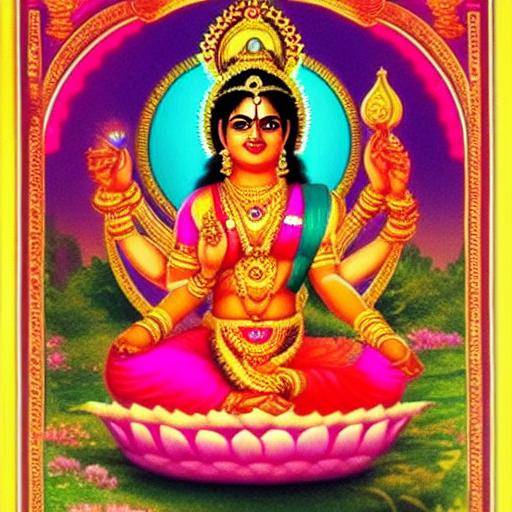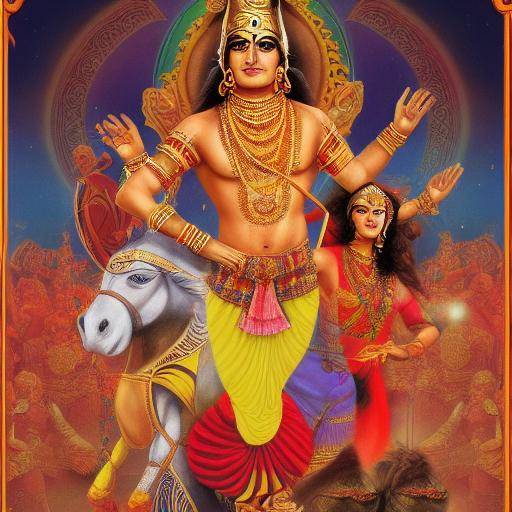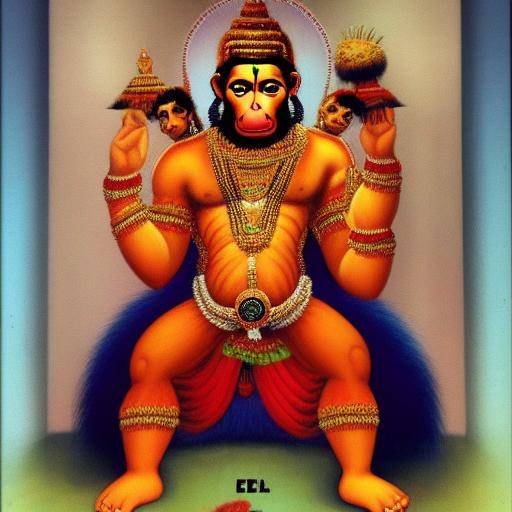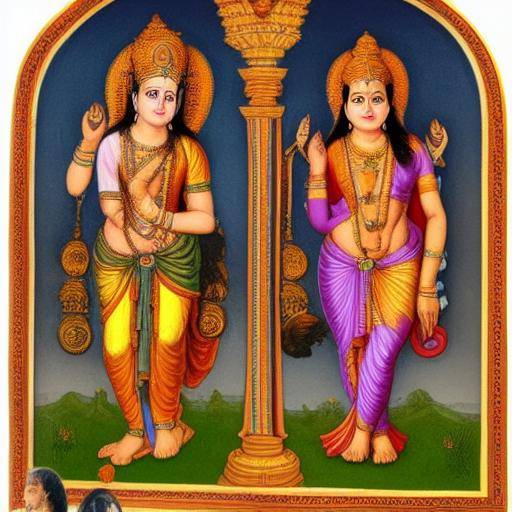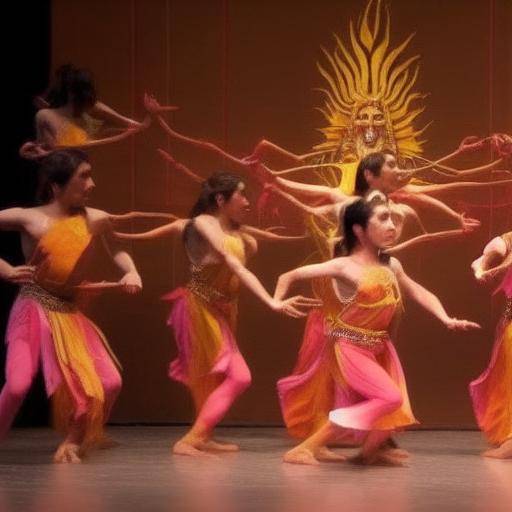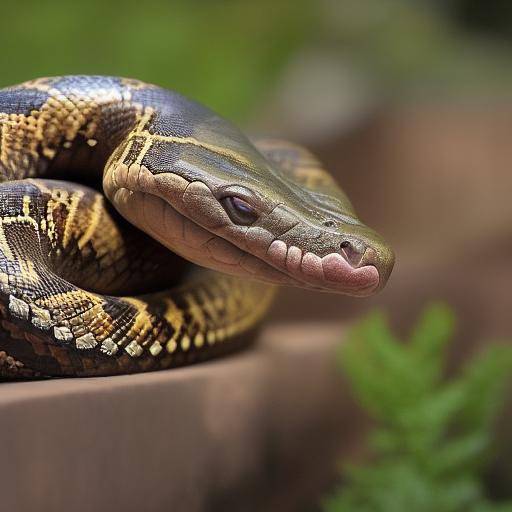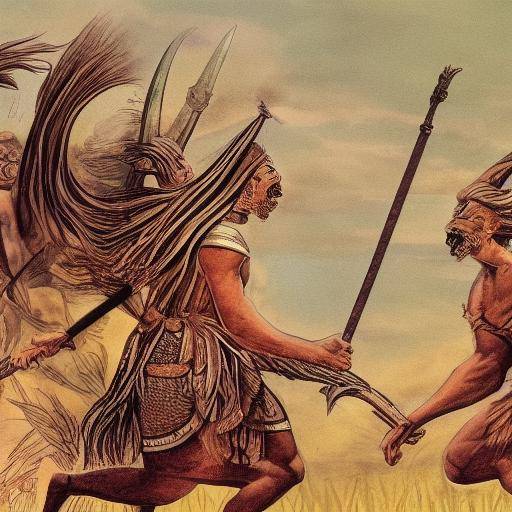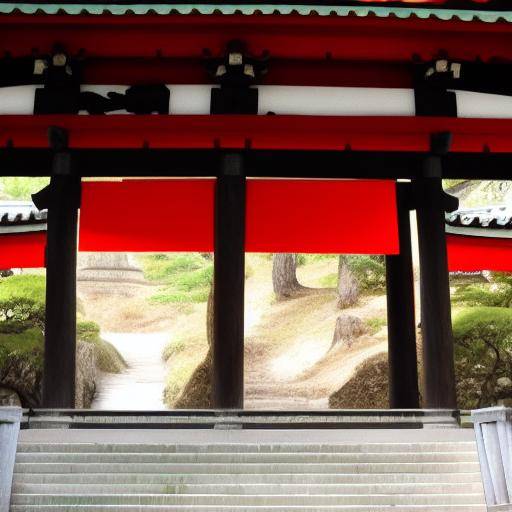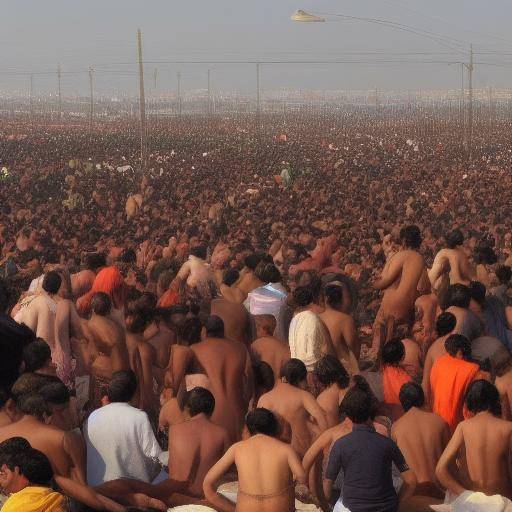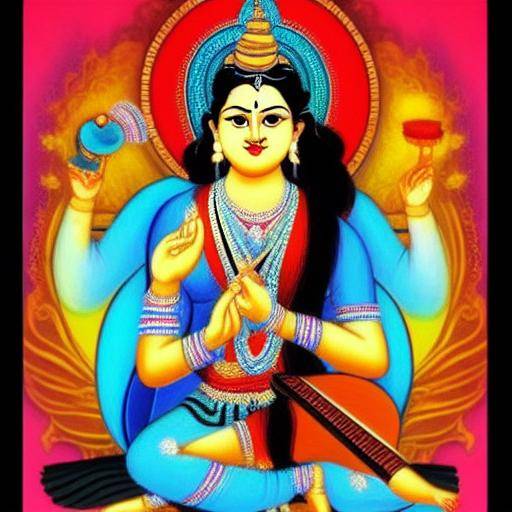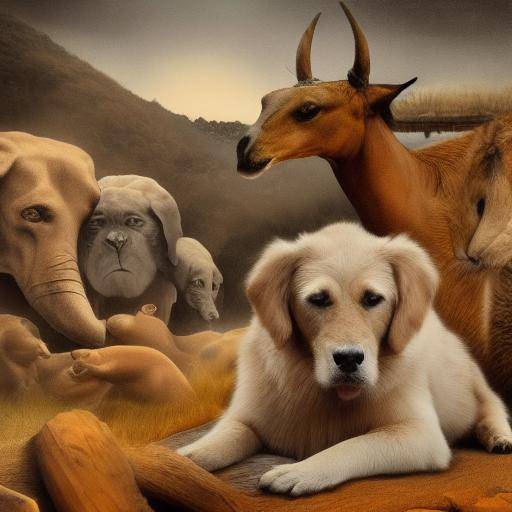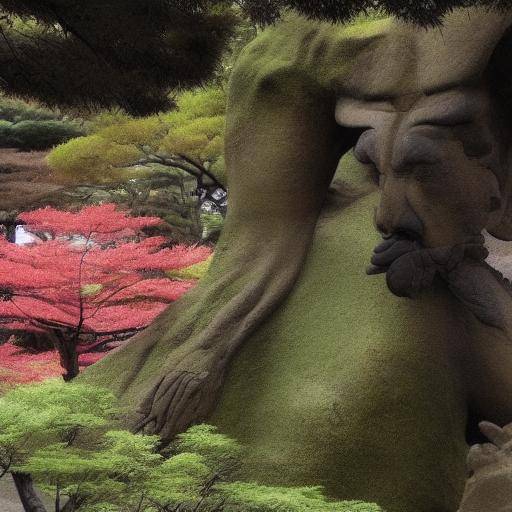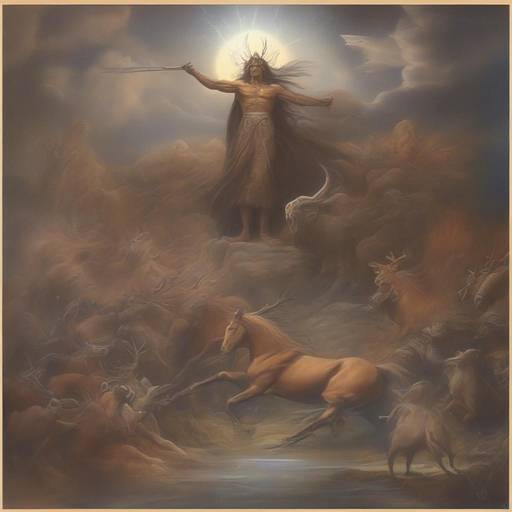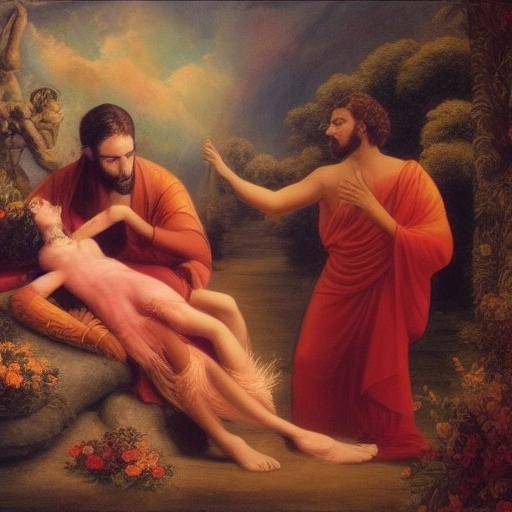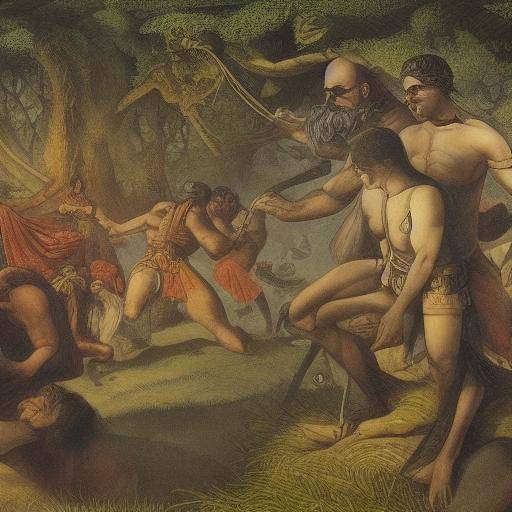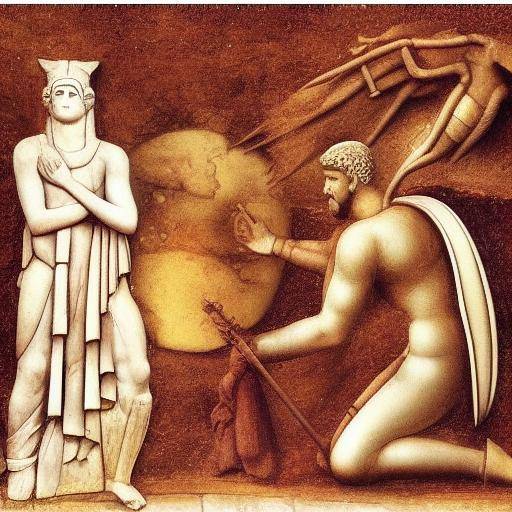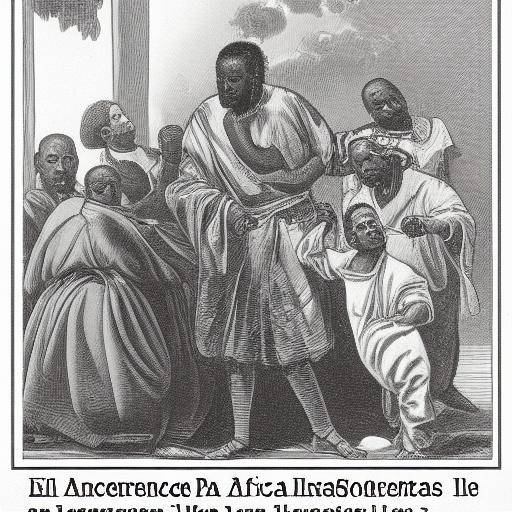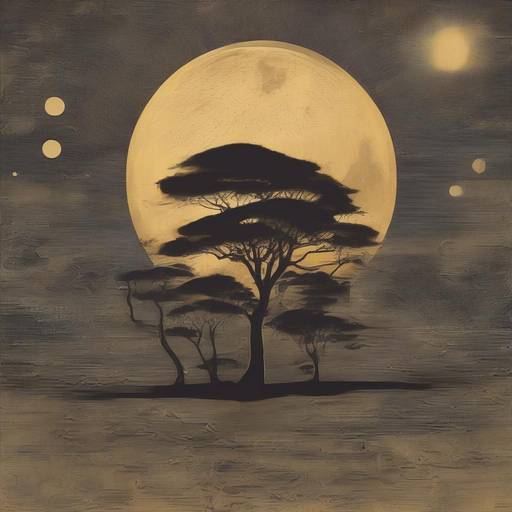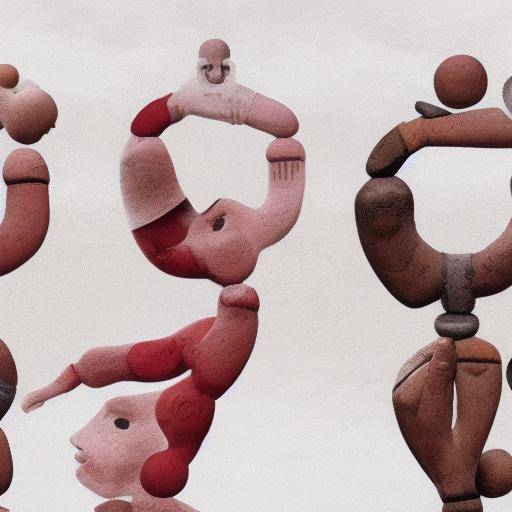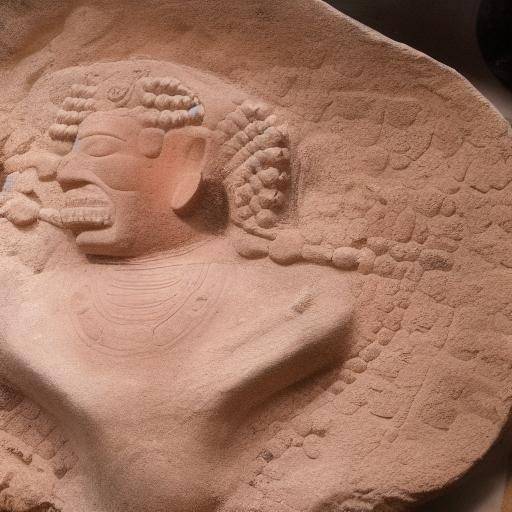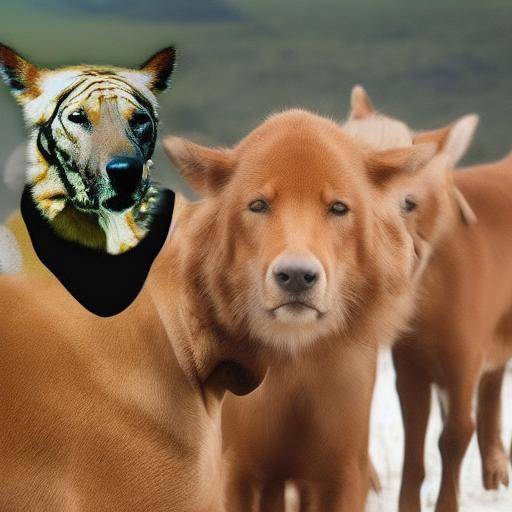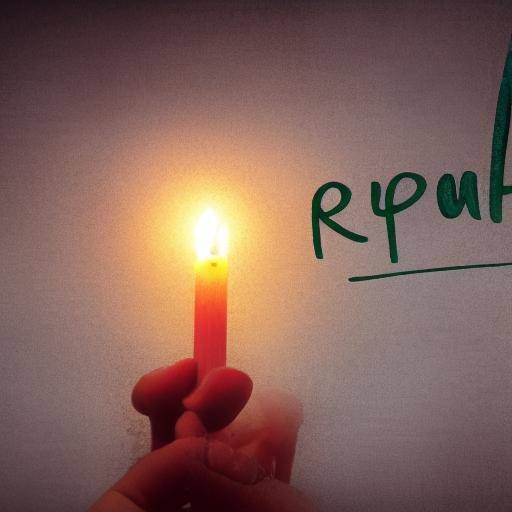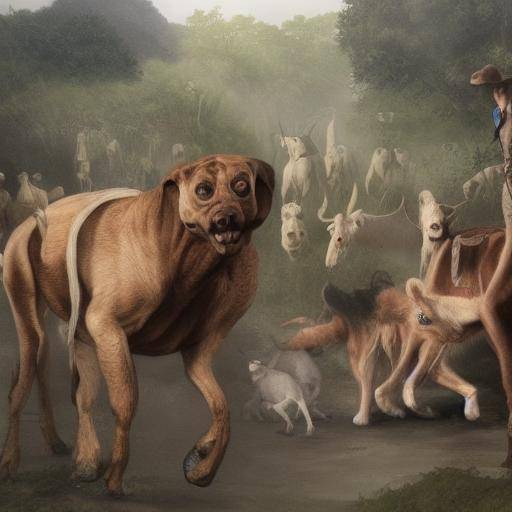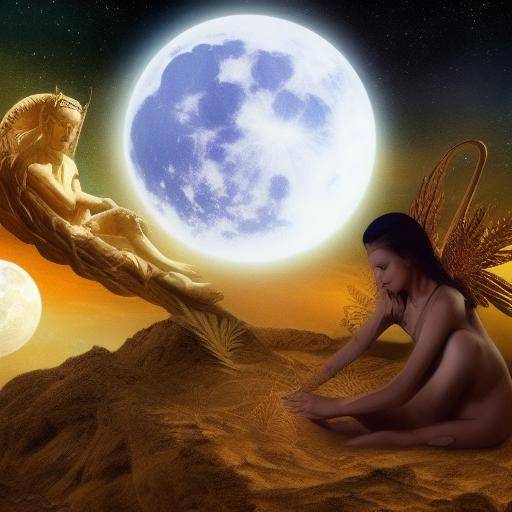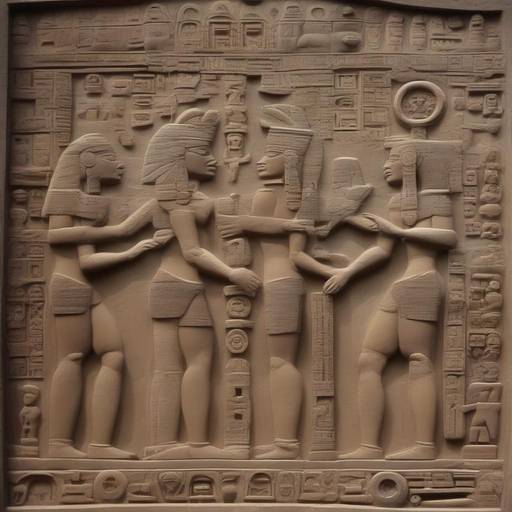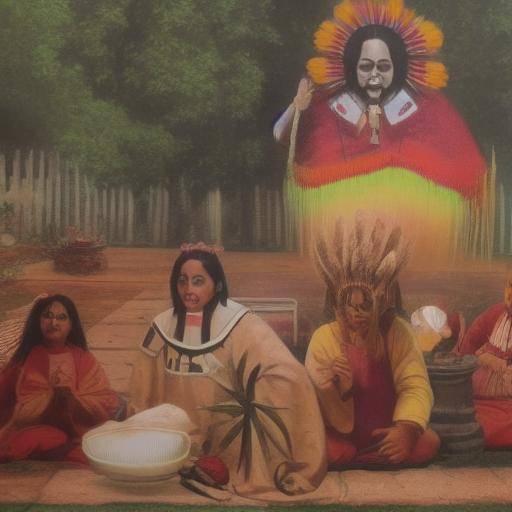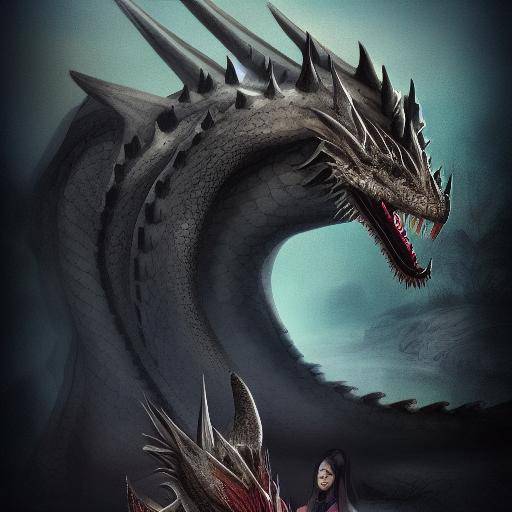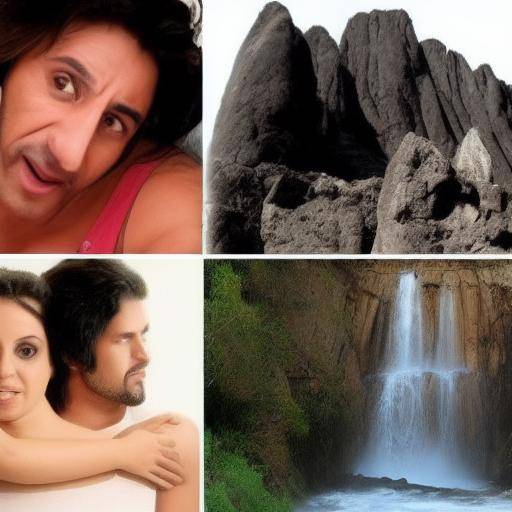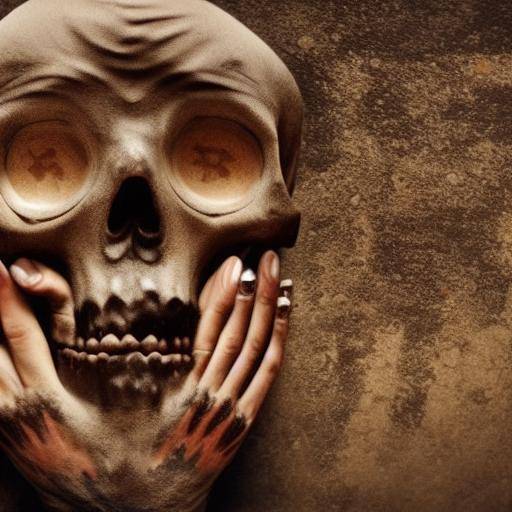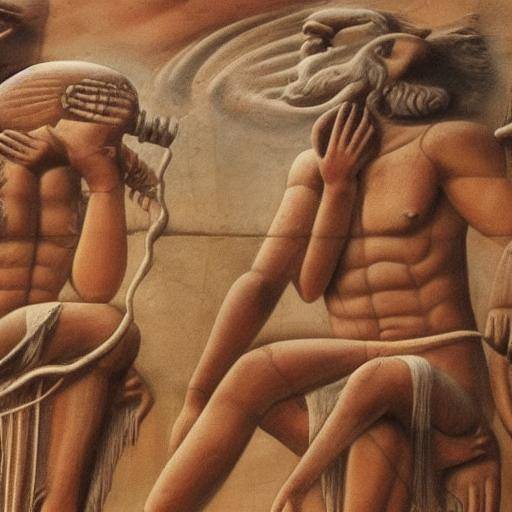
Hindu mythology is rich in fascinating stories that illustrate the complex relationship between humans and gods. These narratives offer a unique vision of beliefs and values rooted in ancient Indian culture. In this article, we will explore in depth the dynamics between humans and gods in Hindu mythology, as well as the beliefs that have shaped this relationship throughout history. From the fundamental myths to the impact on contemporary society, this exploration will cover various aspects to offer a comprehensive understanding of this relevant topic.
Introduction
Hindu mythology is an integral part of India's rich cultural heritage. His mythical accounts convey not only moral and ethical teachings, but also a deeper understanding of human relations and divinities. In this introduction, we will take an initial look at the importance of Hindu mythology and its influence on the perception of the connection between humans and gods.
The Transcendence of Myths
Hindu myths transcend time and space, providing a window to the fundamental beliefs, traditions and values that have permeated over the centuries. These mythical accounts have not only entertained generations, but also served as guides to understand the relationship between humans and gods in the context of Hindu mythology.
The Contemporary Relevance
Despite its antiquity, Hindu mythology continues to play a significant role in modern society. His teachings and stories remain relevant in both personal and social contexts, which demonstrates the perdurability of his influence.
Now, let us enter into a detailed exploration of the history and background of Hindu mythology, as well as the evolution of the relationship between humans and gods.
History and Background
The history of Hindu mythology is as vast and diverse as India itself. It has developed over millennia, forming an intricate network of stories ranging from the creation of the universe to the exploits of deities and heroes.
Origins and Evolution
Hindu mythology has its roots in the ancient Vedic tradition, where there are some of the first manifestations of the divinities worshiped in India. Over time, these deities intertwined with other mythical figures, creating a rich and varied pantheon that reflects the cultural and religious diversity of the Indian subcontinent.
Cultural and Religious Importance
Hindu mythology has not only left an indelible mark on the religion and spirituality of India, but has also influenced various cultural spheres, such as art, literature, music and dance. His stories have served as the basis for countless creative expressions throughout the centuries.
Emblematic Counts and Figures
Throughout the history of Hindu mythology, numerous mythological counts have emerged that have left a profound impression on the collective consciousness of India. From the epopeyas of Mahābhārata and Rāmāyana to the legends of Krishna and Shiva, these stories have defined the understanding of the Hindu people about their own identity and their relationship with the divine.
Now, let us deepen in a detailed analysis of the relationship between humans and gods in Hindu mythology, as well as the underlying beliefs that have shaped this unique dynamic.
Deep analysis
The relationship between humans and gods in Hindu mythology is a complex theme that covers moral, ethical and metaphysical aspects. This analysis will allow us to enter the nature of this connection and understand its impact on Indian society and culture.
Duality and Devotion
Hindu mythology reflects a dynamic of duality in the relationship between humans and gods, where the gods are venerated as superior beings and, at the same time, involve themselves in the lives of humans in ways that transcend the merely spiritual. This duality is manifested in Hindu devotional practices, where reverence to deities is intertwined with the search for their protection and guidance in everyday life.
Karma and Dharma
A central element of the relationship between humans and gods in Hindu mythology is the concept of karma, which states that the actions of an individual have consequences that affect future lives. The dharma, for its part, governs the conduct and duties of each individual within society and the universe. These ethical and moral principles play a fundamental role in the interaction between humans and gods, since it is considered that human actions can influence divine benevolence.
The Divine Intervention
Hindu mythological accounts are full of examples of direct intervention by the gods in human life. Whether in the form of avatars descending to the Earth or through miraculous acts, the gods are represented as entities that significantly influence the destiny and well-being of human beings.
Ingrained beliefs
The relationship between humans and gods in Hindu mythology is not limited to simple acts of worship or reverence; rather, it is imbued with a deep sense of connection and mutual dependence. This belief rooted in the interdependence between humans and deities has permeated Indian society and continues to play a crucial role in its daily life.
Now, it is time to conduct a thorough examination of practical applications, case studies and best practices related to the relationship between humans and gods in Hindu mythology.
Comprehensive review
As we explore the relationship between humans and gods in Hindu mythology, it is essential to examine how these mythological beliefs and narratives manifest in everyday life, as well as to identify the relevant applications of this understanding.
Devotional Practices
Devotional practices in Hindu mythology reflect the deep connection between humans and gods. Through rituals, festivals and pilgrimages, the followers seek to strengthen their link with the divine and obtain their grace to face the challenges of earthly existence.
Celebrations and Festivals
Religious festivals and celebrations in India are a vibrant expression of the relationship between humans and gods. From Holi's colorful festivities to Maha Shivaratri's intense devotion, these celebrations offer a stage for devotion and spiritual connection.
Impact on the Society
The relationship between humans and gods in Hindu mythology has had a significant influence on the social and cultural structure of India. The values and teachings derived from these mythological accounts have shaped norms of behaviour, family relations and community traditions over the centuries.
Cases of Study and Good Practice
Analyzing specific cases of study, where mythological beliefs and narratives have had a tangible impact on the lives of people or communities, offers a practical view of the influence of Hindu mythology in contemporary society.
Continuing, it will be essential to conduct a comparative analysis of the relationship between humans and gods in Hindu mythology, as well as the beliefs that support it.
Comparative analysis
The comparative study of the relationship between humans and gods in Hindu mythology allows us to contextualize and understand more deeply the divergences and convergences in beliefs and practices related to such dynamics.
Comparative mythology
By contrasting Hindu mythology with other cultures, it is possible to identify similarities and differences in the way in which the relationship between humans and gods is articulated and manifested. This comparison gives us a comprehensive framework to understand the uniqueness of Hindu mythology in its approach to the interaction between the divine and the human.
Similarities and Variances
Exploring the similarities and differences between the relationship between humans and gods in Hindu mythology and other mythological traditions allows us to discern universal patterns and cultural particularities that enrich our understanding of these dynamics.
Powerful Synergies
By identifying areas of convergence between beliefs and practices of different mythologies, it is possible to see opportunities for intercultural collaboration and the promotion of mutual understanding. Potential synergies offer fertile ground for interreligious dialogue and building bridges between communities.
Examples and Scenarios
The use of specific examples and concrete scenarios from various mythological traditions helps to illustrate the theoretical and conceptual principles associated with the relationship between humans and gods, offering a more accessible comparative perspective.
We will then enter a section that provides practical advice and applicable recommendations related to the relationship between humans and gods in Hindu mythology.
Practical Tips and Recommendations
Providing practical advice and applicable recommendations related to the relationship between humans and gods in Hindu mythology provides readers with tangible guidance and insights that they can incorporate into their daily lives.
Sustained devotional practices
Recommend devotional practices based on Hindu mythology that can enrich the individual connection with the divine and foster a greater understanding of the values and teachings transmitted by this tradition.
Integration in Modern Life
Provide advice on how to integrate the teachings and principles derived from the relationship between humans and gods into Hindu mythology in modern life, highlighting its continuing relevance in a constantly changing world.
Reflections and Meditations
Suggest reflections and meditations based on Hindu mythological accounts that promote a deeper understanding of the dynamics between humans and gods, as well as their potential impact on individual spiritual growth.
Let us now explore the perceptions of experts and future trends related to the relationship between humans and gods in Hindu mythology.
Perceptions of Experts and Future Trends
The perspectives of experts and future trends in relation to Hindu mythology provide an advance view of the evolution and continuing relevance of this topic.
Interviews and Expert Analysis
Collecting and presenting perceptions of experts in Hindu mythology, comparative religion and cultural history gives a critical look that enriches the understanding of the relationship between humans and gods.
Cultural and Social Implications
Exploring the cultural and social implications of the relationship between humans and gods in Hindu mythology, in the context of contemporary society, provides a wider understanding of their meaning and scope.
Future Projections and Directions
In examining projections and future directions related to Hindu mythology, it is possible to anticipate how the relationship between humans and gods will continue to influence various aspects of India's socio-cultural life and beyond.
Let's move towards case studies and practical applications that illustrate how the relationship between humans and gods in Hindu mythology is manifested in real experiences.
Case Studies and Practical Applications
Case studies and practical applications specifically show how the relationship between humans and gods in Hindu mythology translates into real situations and their consequences.
Impact on Communities
Exploring how mythological beliefs and narratives have positively impacted the well-being and cohesion of specific communities offers a detailed view of the influence of Hindu mythology in everyday life.
Cultural Manifestations
In analyzing contemporary cultural manifestations, such as art, music, dance and cinema, it is possible to appreciate the pervasiveness and validity of the relationship between humans and gods in Hindu mythology in multiple creative expressions.
Lessons Learned
To extract lessons learned from specific cases where the relationship between humans and gods in Hindu mythology has played a significant role provides valuable insights on their continuing relevance and adaptability in different contexts.
Finally, we will conclude this thorough exploration of the relationship between humans and gods in Hindu mythology with an analysis of the main findings and a series of frequent questions that give an even deeper understanding of this topic.
Conclusions and FAQs
The conclusions summarize and consolidate the main findings of the exploration carried out, while the frequent questions offer answers to common questions that may arise in relation to the relationship between humans and gods in Hindu mythology.
Key findings
The key conclusions summarize the most important points addressed throughout the article, highlighting the most relevant and significant aspects regarding the relationship between humans and gods in Hindu mythology.
Final Reflections
The final reflections provide a comprehensive and inclusive view of the relationship between humans and gods in Hindu mythology, highlighting their durability and their continued impact on Indian society and culture.
Frequently asked questions
Frequently asked questions address common questions and provide detailed answers that deepen understanding of the relationship between humans and gods in Hindu mythology, clarifying key aspects and possible doubts.
- What are the main deities in Hindu mythology and how do they relate to humans?
- How does the relationship between humans and gods manifest itself in the daily lives of Hindus?
- What is the importance of religious festivals in the relationship between humans and gods in Hindu mythology?
- What is the role of devotion in the connection between humans and gods in Hindu mythology?
- How has the relationship between humans and gods evolved in Hindu mythology throughout history?
- What moral and ethical teachings can be drawn from Hindu mythological accounts in relation to the dynamics between humans and gods?
In addressing these frequent questions, it is intended to provide a more comprehensive and enlightening view of the relationship between humans and gods in Hindu mythology, offering readers tools to deepen this fascinating topic.
In short, the relationship between humans and gods in Hindu mythology is a rich and complex theme that covers spiritual, ethical and social aspects. Through this detailed exploration, we have seen the transcendence of this dynamic and its continued relevance in Indian society and culture. Hindu mythology not only offers a unique perspective on the interaction between the divine and the human, but also enriches our understanding of the world and stimulates reflection on our own relationships with the transcendental.

